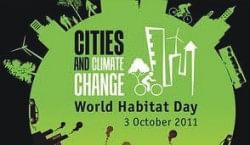Human Rights Monitor
My privacy as a citizen!
Fayazuddin Ahmad
 More often than not when we think of ourselves being a private individual- a citizen of Bangladesh- a consumer, we think about what we purchase through a physical exchange of money for goods or services, ranging from things as simple as fruit or grain to home appliances to cable television, either in a store or through an online exchange where they enter in our credit card information and receive our purchase. Certain services that we- citizens' use may, by its very nature, put an extraordinary amount of sensitive personal information into the hands of vendors. Typical examples include hospitals, banks and telecommunications.
More often than not when we think of ourselves being a private individual- a citizen of Bangladesh- a consumer, we think about what we purchase through a physical exchange of money for goods or services, ranging from things as simple as fruit or grain to home appliances to cable television, either in a store or through an online exchange where they enter in our credit card information and receive our purchase. Certain services that we- citizens' use may, by its very nature, put an extraordinary amount of sensitive personal information into the hands of vendors. Typical examples include hospitals, banks and telecommunications.
In 2006 it was found that AOL's research site had a stored file that contained information collected from more than 600,000 users between March to May of 2006. Though the file did not indicate each user by name, it was eventually found that there was enough information to correlate specific individuals to their user number. The example of AOL's demonstrates the danger of online privacy breaches through either oversight or negligence of the vendor in adopting adequate security measures.
The OECD guidelines drafted in 1980 provided a useful set of 'fair information practices' within which privacy of citizens may be evaluated. Briefly, the major principles declared were: 1) there should be limits to the collection of data, 2) data should be accurate and relevant to the purpose collected, 3) there should be openness about data policies and changes thereof and 4) enabling the individual to find out if data is being held about him and to obtain a copy of the data and make corrections.
The EU data protection directive is another broad directive adopted by the European Union designed to protect the privacy of all personal data of EU citizens collected and used for commercial purposes, specifically as it relates to processing, using, or exchanging such data. It established a broad regulatory framework which sets limits on the collection and use of personal data, and requires each Member State to set up an independent national body responsible for the protection of data. In the US the most comprehensive act for the citizens is the Fair Credit Report Act, which was passed in 1970. Enforcement of the Act is vested in the Federal Trade Commission. The FCRA applies to how citizens' information is collected and used, and applies to insurance, employment, and other non-credit transactions.
In India, broadly, there are four potential avenues for the protection of citizens' privacy in India. Firstly, individual organizations may voluntarily commit to protect the information of their clients through “Privacy Policies”. Secondly, certain professions and industries have codes of privacy that they must statutorily abide by. Thirdly, citizens' privacy may be enforced by the specialized Consumer Dispute Tribunals and lastly, the newly amended Information Technology Act imposes an obligation on anyone controlling data to indemnify against losses caused by the leakage/ improper use of that data.
The International Guide to Privacy suggests the following be included in privacy policies:- i.e. description of the personal information collected by the website and third party, description of how the information is used and list of parties with whom it may be shared, a list of the options available regarding the collection, use, sharing and distribution of the information, a description of how inaccuracies can be corrected, a list of the websites that are linked to the organization's site and a disclaimer that the organization is not responsible for the privacy practices of other sites, a description of how the information is safeguarded against loss, misuse, and alteration, consent for use of personal information.
In Bangladesh the Information and Communication Technology Act included a relief to people when a breach of privacy is occasioned by the leakage of data from computerized databases. While categorizing- what is not open? the Right to Information Act clarified no information which would harm the privacy of the personal life of an individual needs to disclosed. the Consumer Protection Act was enacted with the objective to provide for better protection of the interests of the citizens' has emerged as a major source of possible relief to those who have suffered violations of their privacy.
In conclusion it is important to consider some salient elements when looking at an effective protective regime for citizens' privacy- i.e. a) is a comprehensive data protection more suited to the needs of Bangladesh? b) does Bangladesh want to become compliant with international standards for data protection? c) how will privacy policies be enforced and how will organizations be held accountable for protection of client privacy under the legislation? d) will citizens' be notified if their information is breached? If so what will be included in the breach notification? e) how can legislation ensure that citizens are aware of their privacy rights? and finally f) how can privacy legislation address the need for different levels of protection for different types of data?
The author is an Advocate and Socio-Legal Analyst.

Who bears the brunt of climate change?
“Not much to celebrate on World Habitat Day(3 October 2011) , when close to a third of the global population continues to live in slums and unplanned settlements, often located in areas exposed to serious environmental risks and hazards,” said the UN Special Rapporteurs on Housing, Raquel Rolnik, and on Internally Displaced Persons, Chaloka Beyani.
“There is a dangerous combination of rapid urbanization, much of it to precarious, unplanned areas, and an increased frequency and intensity of climate change-induced disasters. This will likely affect many societies in a profound way,” warned the UN experts. “States and the international community can no longer afford to ignore the specific vulnerabilities of informal settlers to climate change-induced disasters, and the increasing risks they face.”
“Many poor urban populations live on sites unsuitable for housing, like mountain slopes, areas prone to flooding, sea surges or other environmental and weather-related risks,” they said on World Habitat Day, focused this year on 'Climate Change and the Cities'. “Such locations are left to the poorest, who do not have access to other, safer, places.”
“Disasters magnify and deepen inequalities,” stressed the Special Rapporteurs. “People living in informal settlements are particularly affected by climate change induced disasters. After a disaster, they are more exposed to eviction and land grabbing as they lack legal protection and their rights to tenure are not recognized.”
Disasters also highlight the inadequate housing conditions and the precariousness of informal settlements. “From a human rights perspective, it is crucial to upgrade settlements and their grossly inadequate living conditions as part of disaster prevention and response”, said the UN experts.
Another worrying trend is the erosion of livelihoods, in part provoked by climate change, which is a key 'push' factor for the increase in rural to urban migration. “In situations of internal displacement, rapid assistance and protection is also necessary to prevent internally displaced persons from simply disappearing into urban slums and informal settlements”, they noted.
“In observing World Habitat Day this year, we call on States and international agencies to recognize informal settlements and the human rights of their inhabitants, and to address their unique needs and vulnerabilities as an integral and indispensable part of disaster risk reduction and recovery efforts.”
Source: Hera.org.